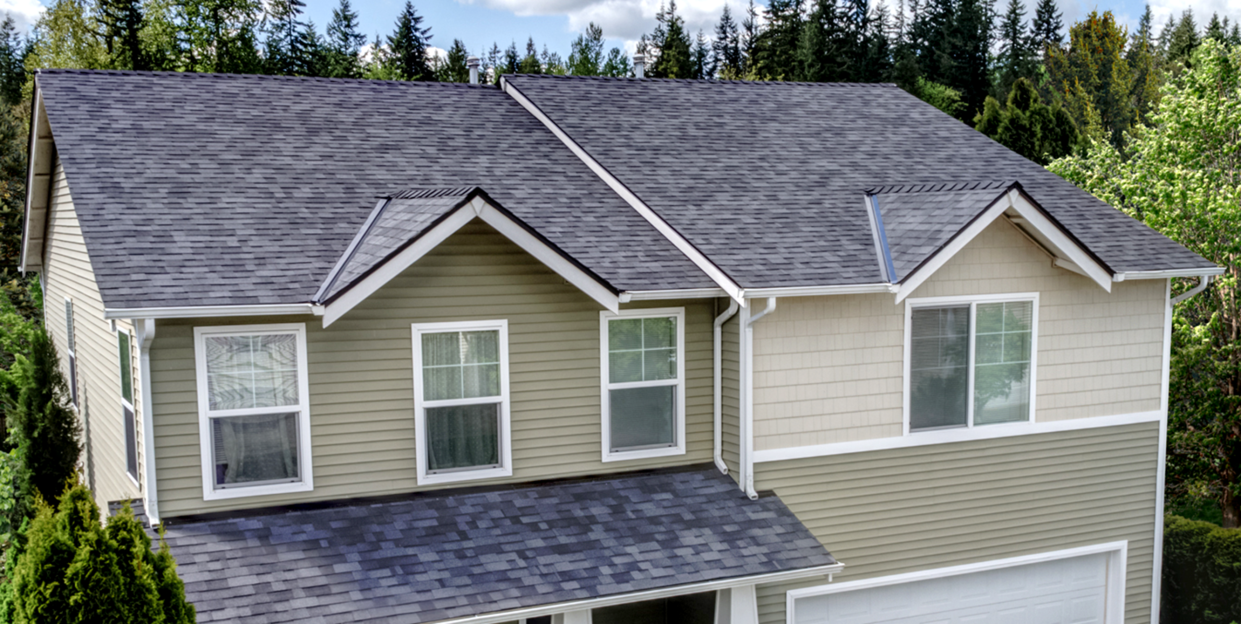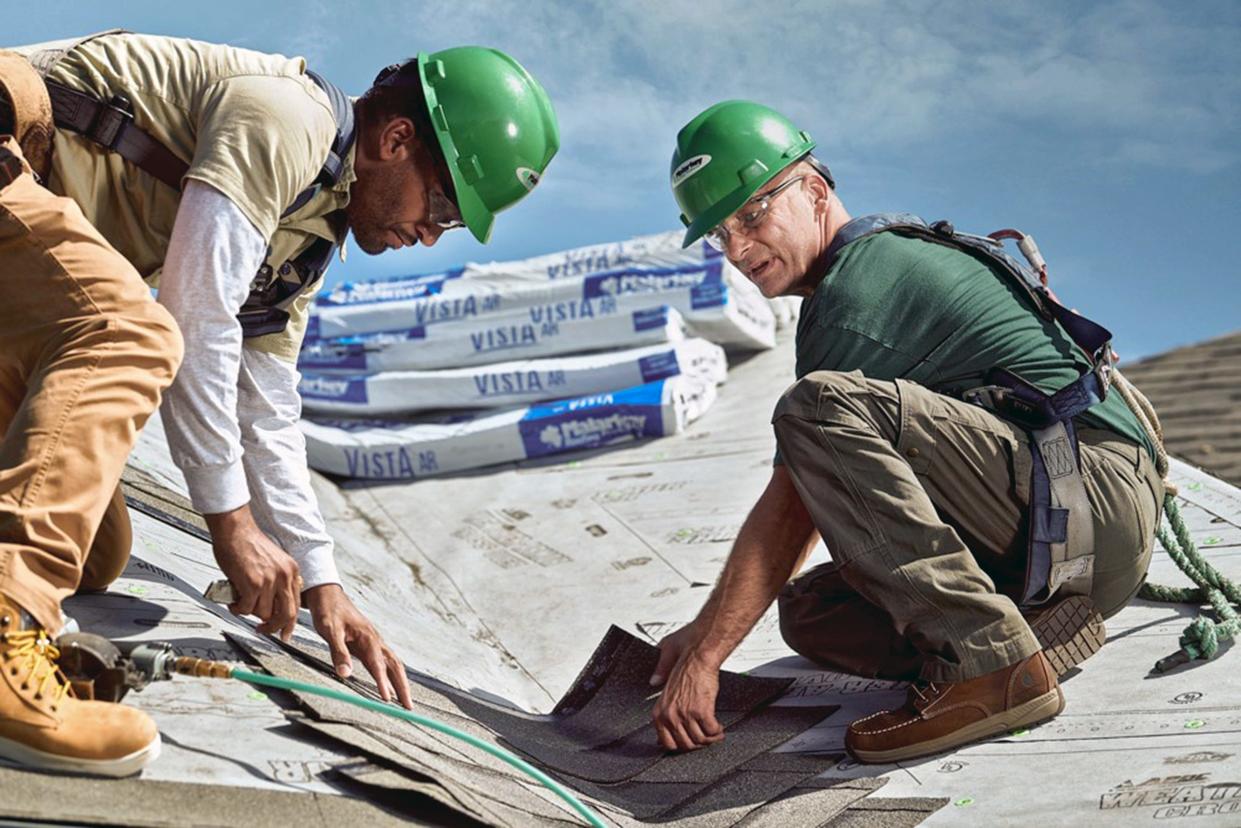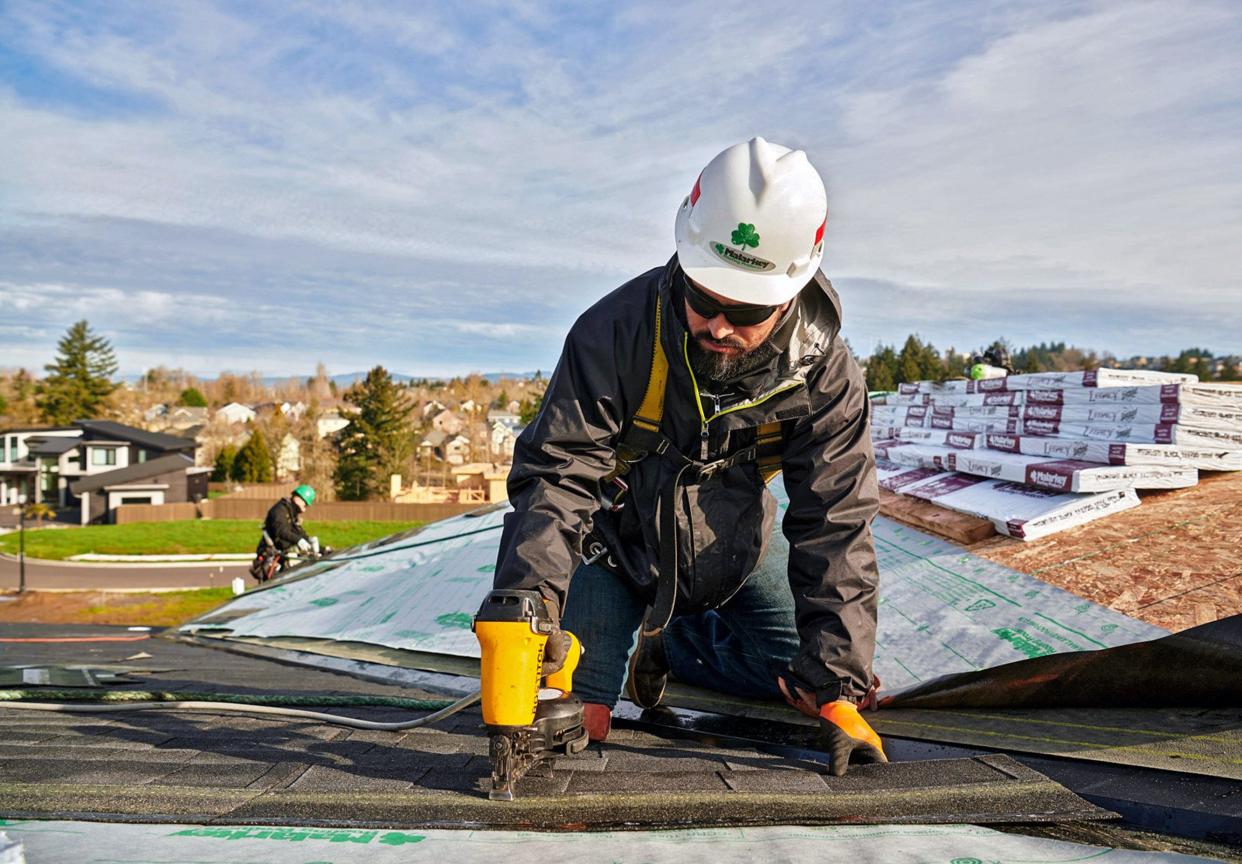Not all roofing shingles are created equal: Here are options to consider after storms hit
"Most homeowners replace their roof only once," they say, the roofing industry, that is.
It's a laughable − yet serious − thing to say to longtime homeowners routinely buffeted by severe storms in traditional Tornado Alley (Texas and Oklahoma), Dixie Alley (where they've shifted east in recent years), and the Great Plains.
But hail, sometimes "the size of canned hams," as comedian and former TV weatherman David Letterman reportedly once quipped, is the main roof killer.
Hail dominates roof and other property damage claims
Severe thunderstorms caused tens of billions of dollars in insured property losses last year, with hail dominating the damaged landscape, according to financial, property and consumer analytics provider CoreLogic's 2024 Severe Convective Storm Risk Report.
CoreLogic said hail 1 inch or larger fell on more than 10 million homes in the United States last year with more than half in just five states and Texas leading all others. It was the most active year for hailstorms in the past two decades, CoreLogic said.
That's why impact resistance is important, along other things, when considering roofing shingles. Asphalt shingles are most common because they're the most economical, easy to install, and can be reinforced with added materials.
Asphalt shingles are the most common, but some are more impact resistant than others

Not all asphalt shingles are the same, said Scott Curry, Oklahoma sales representative for Malarkey Roofing Products, based in Portland, Oregon. Malarkey has a factory in Oklahoma City.
"There are two types of asphalt," he said. "There's oxidized asphalt, which takes raw asphalt and blows hot air through it at 500 degrees − it pre-ages asphalt. That's the old way of making shingles. We used to do that, and we don't anymore.
"What we do now is we take polymers and blend into the asphalt flux, which makes a longer-lasting, more flexible, impact-resistant shingle with rubberized properties. We put upgraded or recycled plastics and rubbers. We even use (used) rubber tires in our formula. So we make a better shingle, while also making our asphalt very environmentally friendly."
Things to consider before buying shingles

Curry said people need to think about some things before replacing or upgrading an asphalt roof.
Quality of product, specifically impact resistance. Testing by Underwriters Laboratories or FM Approvals rates roofing materials from Class 1 to Class 4, with Class 4 representing the highest impact resistance. Malarkey shingles are tested by Underwriters Laboratories.
If you buy high-impact shingles, you might qualify for insurance discounts, depending on your carrier. Ask your insurance carrier about discounts.
Know what your homeowner's insurance policy says. Read it.
Understand the manufacturer's limited warranty. If you don't, ask.
Quality of installation. Does the roofing contractor you're considering have manufacturer's certification? It can mean greater warranty coverage.
Top 5 popular roofing materials after asphalt
Here are the top five types of residential roofing after asphalt, according to HGTV.
Clay and concrete tiles: "Concrete tiles are versatile and are less expensive than genuine clay, but also have a heavy weight."
Metal roofing: "Available in two types, panels and shingles, metal roofs come in aluminum, copper, stainless steel and zinc."
Slate: "Offering lots of beauty and a distinctive elegant appearance."
Wood shingles and shake: "Wood shakes are handmade and rougher-looking than wood shingles, which are usually cut by machine. If you live in a fire-prone area, look for Class A fire-rated wood roofing products that include shingles treated with a fire-resistant coating."
Synthetic roofing products: "These products are designed to be strong and easy to maintain. Some of these materials are fire-resistant."
Sign Up:Weekly newsletter Real Estate with Richard Mize
Senior Business Writer Richard Mize has covered housing, construction, commercial real estate and related topics for the newspaper and Oklahoman.com since 1999. Contact him at rmize@oklahoman.com. Sign up for his weekly newsletter, Real Estate with Richard Mize. You can support Richard's work, and that of his colleagues, by purchasing a digital subscription to The Oklahoman. Right now, you can get 6 months of subscriber-only access for $1.

This article originally appeared on Oklahoman: Types of roofing shingles to consider after hail, severe storms strike
